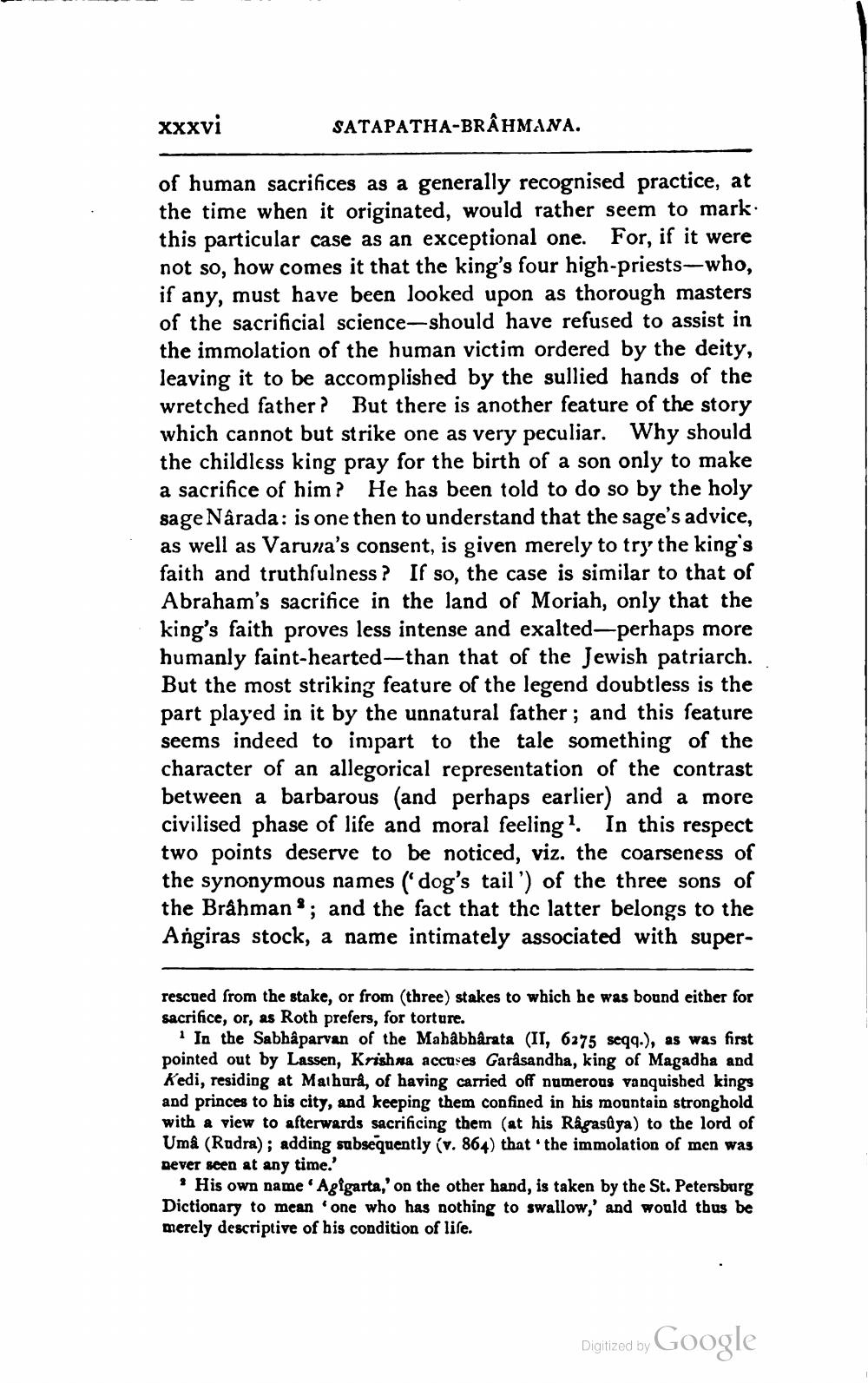________________
xxxvi
SATAPATHA-BRÂHMANA.
of human sacrifices as a generally recognised practice, at the time when it originated, would rather seem to mark: this particular case as an exceptional one. For, if it were not so, how comes it that the king's four high-priests-who, if any, must have been looked upon as thorough masters of the sacrificial science-should have refused to assist in the immolation of the human victim ordered by the deity, leaving it to be accomplished by the sullied hands of the wretched father? But there is another feature of the story which cannot but strike one as very peculiar. Why should the childless king pray for the birth of a son only to make a sacrifice of him? He has been told to do so by the holy sage Narada: is one then to understand that the sage's advice, as well as Varuna's consent, is given merely to try the king's faith and truthfulness? If so, the case is similar to that of Abraham's sacrifice in the land of Moriah, only that the king's faith proves less intense and exalted-perhaps more humanly faint-hearted-than that of the Jewish patriarch. But the most striking feature of the legend doubtless is the part played in it by the unnatural father; and this feature seems indeed to impart to the tale something of the character of an allegorical representation of the contrast between a barbarous (and perhaps earlier) and a more civilised phase of life and moral feeling. In this respect two points deserve to be noticed, viz. the coarseness of the synonymous names (dog's tail') of the three sons of the Brâhmans; and the fact that the latter belongs to the Angiras stock, a name intimately associated with super
rescued from the stake, or from (three) stakes to which he was bound either for sacrifice, or, as Roth prefers, for torture.
In the Sabhâparvan of the Mahabharata (II, 6275 seqq.), as was first pointed out by Lassen, Krishna accuses Garâsandha, king of Magadha and K'edi, residing at Mathura, of having carried off numerous vanquished kings and princes to his city, and keeping them confined in his mountain stronghold with a view to afterwards sacrificing them (at his Ragasûya) to the lord of Uma (Rudra); adding subsequently (v. 864) that the immolation of men was never seen at any time.'
* His own name. Agigarta,' on the other hand, is taken by the St. Petersburg Dictionary to mean 'one who has nothing to swallow,' and would thus be merely descriptive of his condition of lise.
Digitized by Google




